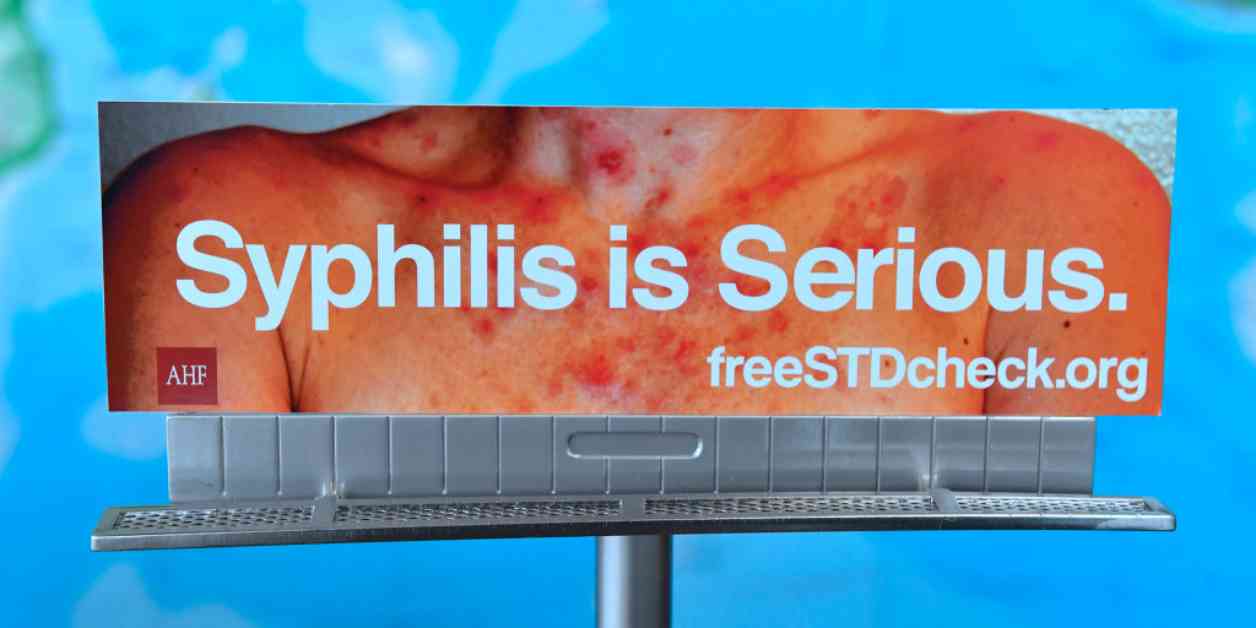Syphilis Cases Surge to 1950s Levels: Strategies to Combat the Increase
In the spring of 2023, Dr. Irene Stafford, a maternal-fetal medicine physician at the University of Texas Health Sciences Center in Houston, was called to the ER for what should have been a routine delivery. However, the situation quickly turned grave as she discovered that the unborn baby boy had already died in the womb. Following this tragic event, the mother’s syphilis test results returned positive, indicating that the infection had been silently passed from mother to son. Dr. Stafford emphasized that this heartbreaking outcome could have been prevented with early detection and a simple shot of penicillin.
Syphilis, a sexually transmitted infection that was nearly eradicated in the U.S. at the start of the 21st century, has resurfaced dramatically. In 2022, the Centers for Disease Control and Prevention reported over 200,000 syphilis cases, marking the highest count since 1950. Congenital syphilis cases have similarly increased tenfold over the past decade, despite the fact that 90% of cases are entirely preventable. The resurgence of syphilis is attributed to underfunded prevention programs over the past two decades and challenges in diagnosis, as syphilis is known as the “great imitator” due to its varied symptoms. Many individuals infected with syphilis do not display symptoms or are unaware of their infection, making proper diagnosis difficult even when they seek medical attention.
Dr. Kenneth Mayer, an infectious disease physician and medical research director of the Fenway Institute in Boston, highlighted the issue of healthcare providers not considering syphilis during patient visits. With a generation of doctors who have limited experience with syphilis cases, there is a gap in testing practices. The comprehensive impact of the Covid-19 pandemic further exacerbated the situation, as resources were redirected towards combating the coronavirus, leading to a neglect of STI prevention efforts.
In response to the escalating syphilis cases, healthcare professionals and public health officials are devising innovative strategies to screen individuals for syphilis and mitigate its spread. Emphasis is placed on increasing testing rates, a challenging task that requires creative approaches to reach diverse populations.
**Increasing Awareness and Testing**
Public health departments across the country have launched eye-catching awareness campaigns to alert both the public and healthcare providers about the risks of syphilis. In Ohio, Donna Fox, the HIV and STI manager at the Toledo-Lucas County Health Department, observed a significant number of syphilis cases among individuals who reported paying for sex. To address this, bold billboards were erected in Ohio with messages like “Paying for Sex? Get Tested!” The campaign resulted in a surge in syphilis appointments and a decrease in cases, indicating the effectiveness of targeted messaging.
While fear-based campaigns have garnered attention, they may not always lead to behavioral changes. Fox emphasized the importance of promoting safe sex practices and regular testing to prevent the spread of syphilis. Educating clinicians on the necessity of taking sexual histories and ordering appropriate tests is crucial in ensuring timely diagnosis and treatment.
In Texas, Dr. Stafford implemented a proactive approach to syphilis testing for pregnant women by incorporating alerts in electronic medical records. This simple modification significantly increased screening rates and led to a reduction in congenital syphilis cases. By integrating syphilis testing into routine prenatal care, healthcare providers can identify and treat infections early, preventing adverse outcomes for both mothers and infants.
**Enhancing Access to Testing and Treatment**
Access to testing and treatment plays a vital role in controlling syphilis transmission. In Indigenous communities, where syphilis rates are disproportionately high, innovative approaches like incentivizing testing have shown promising results. Tribes across the U.S. offer incentives such as gift cards for individuals who undergo STI testing, making it easier for community members to prioritize their health.
Collaborative efforts between tribal communities and academic institutions have led to the development of at-home STI test kits, providing a convenient and discreet option for individuals to get tested. By removing barriers to testing, these initiatives aim to increase awareness and promote early intervention for syphilis infections.
In underserved areas like rural Minnesota, mobile care clinics have emerged as an effective way to deliver STI testing and treatment to vulnerable populations. These clinics offer a range of services, including syphilis testing, substance use disorder treatment, and referrals to healthcare providers. By addressing multiple health concerns in a holistic manner, mobile clinics build trust within communities and encourage individuals to seek care for STIs and other health issues.
**Integrated Healthcare Approaches**
Integrating syphilis testing into general healthcare services can streamline the screening process and reach a broader population. Programs like Preg-Out in Houston hospitals prioritize syphilis testing for pregnant women admitted to the emergency department, ensuring that all expectant mothers receive timely screenings. Opt-out screening initiatives have been successful in increasing testing rates and identifying syphilis infections early, leading to improved outcomes for both mothers and infants.
Collaboration between healthcare providers and public health departments is essential in addressing the syphilis resurgence. By aligning testing and treatment protocols, healthcare systems can work towards eliminating syphilis as a preventable and treatable disease. Dr. Arlene Seña from the University of North Carolina Chapel Hill emphasized the importance of community-centered approaches that prioritize individual needs and foster trust between patients and healthcare providers.
As the U.S. grapples with rising syphilis cases, innovative solutions and coordinated efforts are key to reversing this trend. By promoting awareness, expanding testing access, and integrating syphilis services into routine healthcare, healthcare professionals can make significant strides in combating the syphilis epidemic. Despite the challenges posed by the resurgence of syphilis, there is optimism that with concerted efforts and strategic interventions, the nation can once again reduce and ultimately eliminate this historic disease.


















